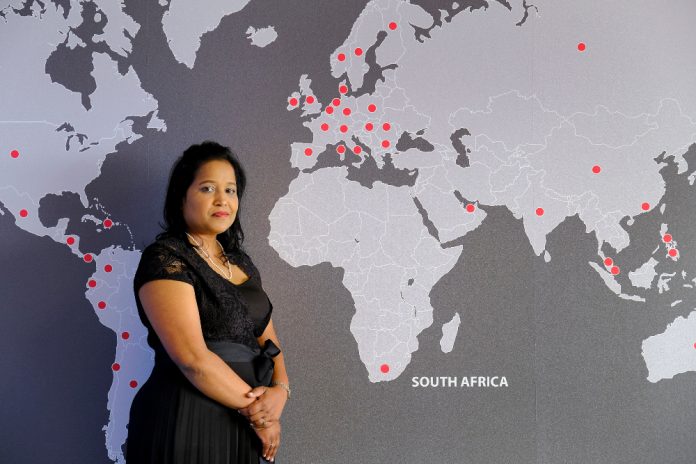Digital transformation is crucial to the survival of any business today. And to truly capitalise on digital investments, organisations need to track the tools they are spending money on and understand how those tools are being used.
This is known as digital supply chain (DSC) management, and it’s become the cornerstone of digital transformation, says Marilyn Moodley, Country Leader for South Africa and WECA (West, East, Central Africa) at digital transformation specialist SoftwareONE. “When done right, it streamlines and integrates systems and activities across the procurement lifecycle of software and cloud services. It means getting the right software at the best price, on an economical contract, as quickly as possible. It gives organisations the ability to track their software spend and understand how those tools are affecting productivity and the bottom line.”
The dangers of poor management
Around 35% of all software is said to be wasted, and a staggering 56% of organisations estimate that between 20 to 40% of their IT funding is spent on shadow IT.
“While inefficiencies like the former unnecessarily increase expenditure, the latter can open an organisation up to security compromises – with dire consequences,” says Moodley.
On top of that, she says poor DSC management can result in:
- Outdated or unnecessary systems: Without a company-wide software catalogue, and continuous updates to it, it’s easy to purchase outdated, incorrect, superfluous, or overpriced software.
- Poor user experience: Users often wait weeks before receiving necessary software because of inefficient management. This can lead to unauthorised software, exposing the organisation to security risks.
- Overspending: Besides software wastage, organisations often don’t have processes in place to check if spare licences are available before purchasing new ones.
- Poor understanding of terms: Not carefully abiding by terms such as geographic restrictions or the number of licences you are entitled to use, can lead to non-compliance and large fines.
- Entitlement inaccuracy: Without a mechanism to capture and normalise entitlement data, you could be left with missing versions and editions, incorrect licence types, and applications that aren’t properly linked.
- Audit exposure: Licencing oversights could open companies up to audit risk.
- Poor visibility of renewals: Trying to manually keep track of renewals often leads to late or missed renewals and penalties or limited time to plan and prepare for contract negotiations. This, in turn, can lead to spending more on renewals and miss opportunities for greater efficiency.
The benefits of a comprehensive system
Proper DSC management saves time, money, and resources. Gartner predicts that 40% of enterprises will use software asset management as the primary mechanism for reducing SaaS contract costs with “dominant” vendors in 2024.
But setting up such a system, especially in a large organisation, can be a mammoth task. In the same Gartner report, experts predict that by 2025, 40% of organisations will use continuous software asset management managed services from third parties for at least part of their rapidly expanding and increasingly complex software estate.
Third parties, such as SoftwareONE, can ensure that organisations have a single, accurate catalogue with global capabilities to support any currency to purchase approved software. “Such clear visibility means software can be delivered to end users in a matter of hours, and approvals can be mandated with stringent policies on what software is allowed or not, decreasing the risk of shadow IT,” explains Moodley.
When it comes to licencing and subscriptions, third parties’ automation will allow you to check for unused licenses before spending money or renewing subscriptions, she adds. New software or licence agreements would also be read and vetted for any risks to the organisation, and favourable terms would be negotiated. Then, usage rights and entitlements would be normalised and stored in a sophisticated compliance tool that enables smart business decisions.
And though third-party services cost money, Moodley says the savings they can achieve will be well worth it. “Well-designed systems would allow you to see 100% of your cloud spend and manage it in real-time to curb over-provisioning. A global catalogue with clear purchasing workflows also leads to increased buying power through vendor consolidation, enhanced compliance and reduced audit risk, and further savings on software spend with visibility into software transactions and renewals.”
Whether you decide to use a third party or choose to set up such systems in-house, it’s clear that DSC management is no longer a luxury, but a necessity, says Moodley. “Tomorrow’s successful organisations are creating such systems, road maps for their digital transformation journey, today.”




